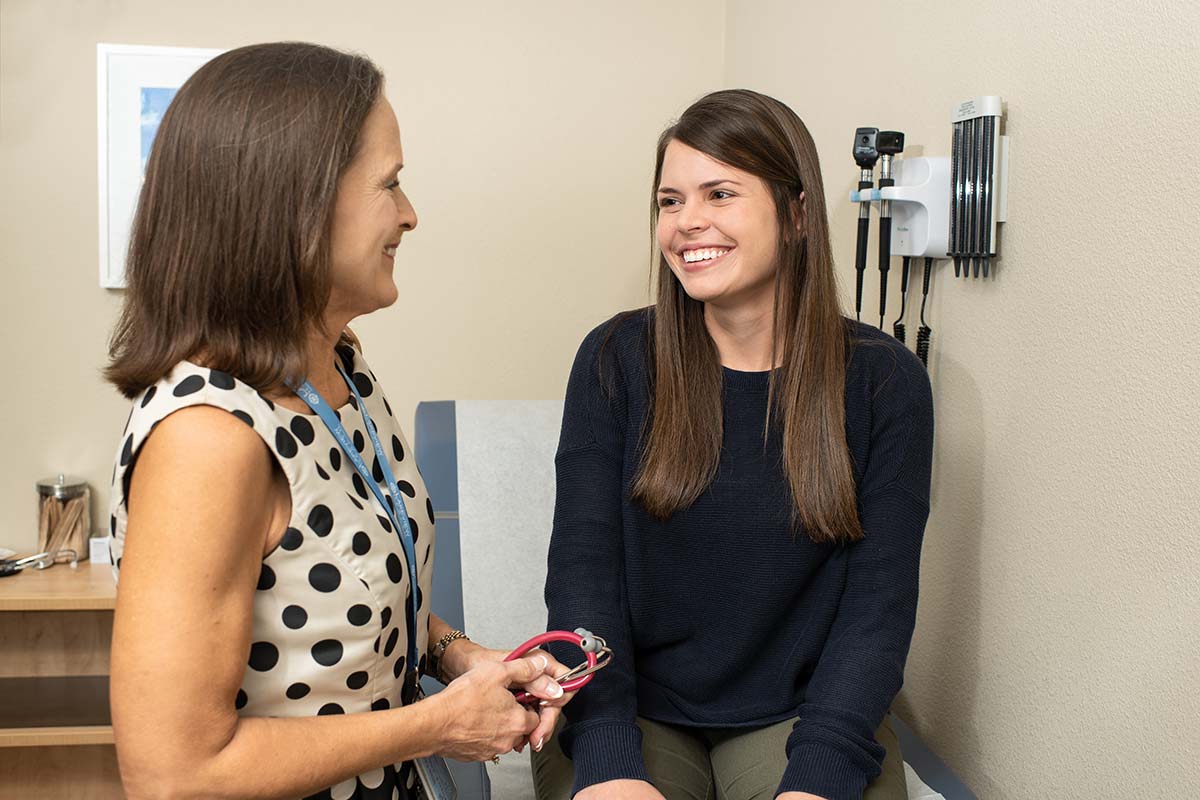

By: Lakeview Health
Building a Support System During Recovery
Recovery from drug or alcohol addiction requires hard work and persistence. Addiction is a complex disease not simply treated once and forgotten. Breaking the cycle of addiction requires a strong support system, including a team of medical professionals who understand that staying sober is a lifelong process.
Finding the Best Providers In a Sea of New Options (and Terminology)
The treatment options for people battling addiction have grown almost as fast as the opioid epidemic. The variety of programs and approaches can be daunting—ranging from rehab centers to individual providers. Confusing matters further is the evolving terminology (rehab center, addictionologist) that sound official but often don’t have standard definitions. Providers of various education and experience levels are all using the same terms. One of the few exceptions is the term “board certified.” While there are a few different governing boards that offer certification, each certify that the provider has expert training or experience in addiction medicine. Looking for board-certification is a way to focus only on those providers with the most specialized training and experience. For rehab centers, you can focus on choosing a center that has board-certified addiction specialists on staff.
In many states, rehabilitation facilities are not required to employ physicians who are board certified, so you’ll have to do your homework when searching for treatment options.
How Can I Find Out If A Provider is Board Certified?
Online physician bios often include information on their board certifications, but it’s always a good idea to double-check the source. Currently, there are two organizations for psychiatrists and other medical doctors to become board certified in addiction medicine. It’s common for physicians to be a part of one or both:
- American Board of Addiction Medicine (ABAM): Physicians have met rigorous standards through intensive study, assessment and evaluation. Also, assures the public that a physician has the knowledge, experience and skills to provide high-quality patient care.
- American Society of Addiction Medicine (ASAM): A subspecialty of the American Board of Preventative Medicine, ASAM participation strives to improve the quality of addiction treatment, educating physicians and the public, supporting research and prevention, and promoting the appropriate role of physicians in the care of patients with addiction.
Psychologists are not medical doctors, so they can’t be board-certified in addiction medicine. However, they can become
- Certified alcohol and drug counselors by the National Certification Commission for Addiction Professionals (NCC AP) Members of the American Psychological Association’s Division of Addiction Psychology
Any of these professionals may call themselves an addictionologist.
Do I Need an Addiction Psychiatrist or Psychologist (Addictionologist)?
Both psychiatrists and psychologists have a role to play in helping you manage your substance use disorder. An addiction psychiatrist can prescribe medications to assist with detox or withdraw from drug and alcohol use. They can also tailor specific recovery plans for people who have a dual diagnosis of addiction and other mental health issues (e.g., anxiety, depression, bipolar, PTSD, schizophrenia). Addiction psychologists, on the other hand, focus primarily on talk-therapy and identifying behavioral patterns. They can work with patients as individuals or in group sessions to help with the many emotional transitions that occur during the recovery process.
The best rehab centers have a variety of addiction specialists on staff including experienced psychiatrists, psychologists and other physical and behavioral therapists.
Should I Start With a Rehab Center? Or My Doctor?
If you have an existing relationship with a psychiatrist or psychologist, it’s a good idea to find out if they have also been board certified in addiction medicine before relying on them for your primary source of care.
If a treating physician is not board-certified in addiction, it means that they have received little to no official training to properly treat or connect patients with specialty care.
If they are experienced addiction treatment providers, then a self-managed approach with a single provider is, of course, possible. Ask your provider a few additional questions as well, such as:
- Have you been trained to assess people with addiction issues?
- Are you comfortable working with patients who have an addiction to drugs or alcohol?
- How familiar are you with the referral and drug treatment process?
- Have you conducted research and published articles on addiction?
But many people with addiction need more structure and support to begin and continue their recovery than an individual provider. Rehabilitation Centers can provide that solid foundation and support in a variety of evidence-based programs, such as:
- Medically Supervised Detox. Addiction specialists monitor your detox, offering medications to make it safer and more comfortable. You can detox in a rehab center whether or not you choose to enter inpatient treatment after.
- Inpatient Rehabilitation (also called Residential Rehab). Patients live in the center for a period of time for treatment, which includes a full day schedule.
- Outpatient programs. Patients live independently and go to the rehab center several hours each day for recovery treatment. There are levels of outpatient care, including Intensive Outpatient and Partial Hospitalization.
Not all places that call themselves “recovery centers” offer one or more of these programs. Some offer little more than group housing with other people trying to achieve lasting sobriety (Sober Homes). That’s why research is so important.
Questions To Ask When Researching Addiction Treatment Options
The first 3 questions you should always ask will give you a good idea of whether the program/provider has the expertise and training needed to offer addiction treatment:
- Is the doctor(s) treating you board certified in addiction medicine and licensed (requirements for this will vary by state)?
- Has the treatment approach been proven as effective for addiction recovery (an evidence-based program)? Evidenced-based programs have been verified by decades of scientific research and practice. Treatment plans should be backed by research that is peer-accepted, using the latest methods for sustained recovery.
- Is the facility providing treatment a member of the National Association of Addiction Treatment Providers (NAATP), a group that promotes ethics and best practices for the addiction industry? NAATP members adhere to the highest standards of care.
Once you’ve narrowed down your choices with these questions, it’s a matter of finding the right fit for your specific needs. Some things to consider:
- The programs available—whether you are looking for detox, inpatient or outpatient care.
- Any other mental health issues you may have. Patients with anxiety, depression or other issues will benefit from a dual-diagnosis program that specifically addresses how these conditions intersect with addiction.
- Whether you have had any underlying trauma that may be contributing to addictive behaviors. If so, a trauma-informed care program will best meet your needs. You may further benefit from a gender-responsive program that provides men-only and women-only facilities and curriculum.
- Any other programs you may have an interest in, such as a religion-based program (or non-religious), 12-step facilitation, chronic pain management or programs specific to your substance use (e.g., alcohol, opioids).
When talking to prospective treatment center staff, ask for an opinion on something you read about that you think will work for you or a loved one, such as exercise, mindfulness practice, stress reduction or relapse prevention. Knowing that the care team is well-versed on the subject to give you a formal or educated opinion on the matter will demonstrate their willingness to treat the individual’s unique case. Finding the right treatment can involve a lot of work but it’s ultimately the most important part of recovery. Lakeview Health was founded in 2001 in Jacksonville, Florida. As a growing addiction treatment center with locations in Florida and Texas, we strive to treat the whole patient – mind, body, and spirit – using a multidisciplinary approach to heal the mind, body, and spirit. To get started, call 866-704-7692.





